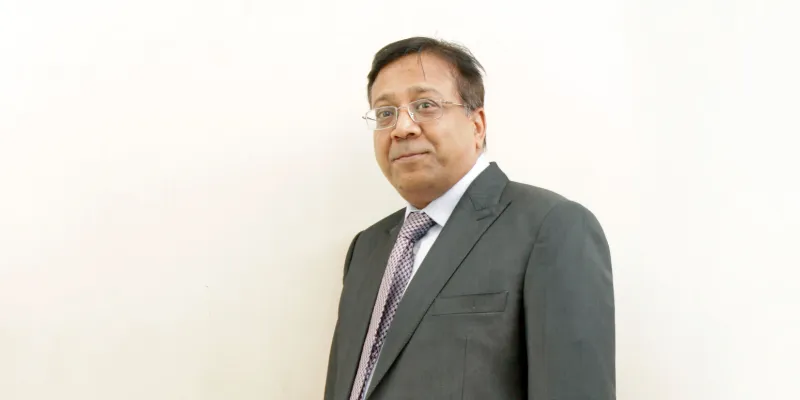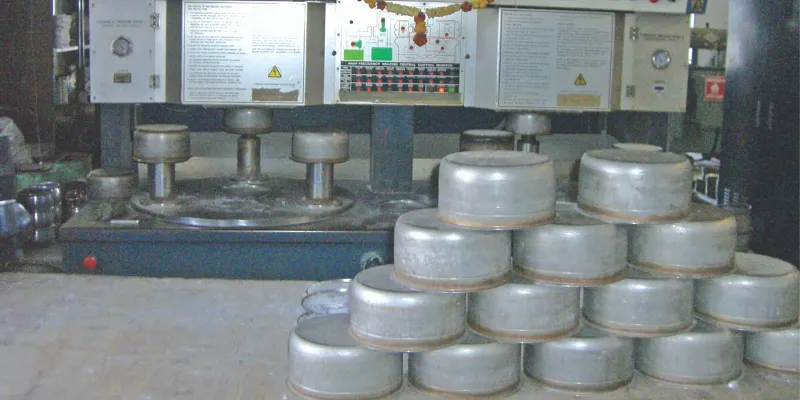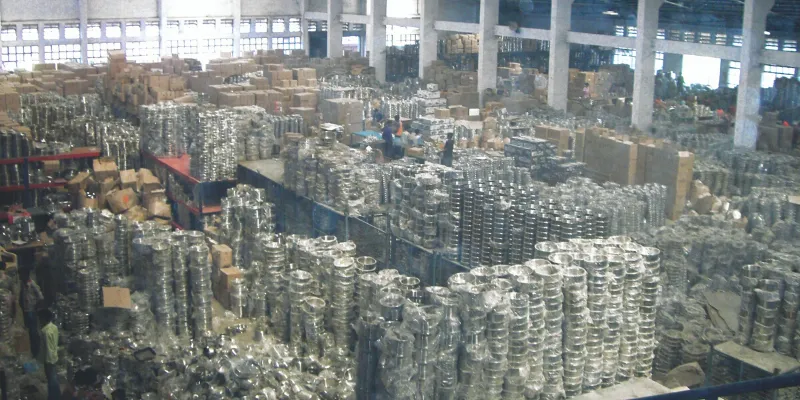How this family-run business makes Rs 180 Cr revenue: the story of Vinod Cookware
Started by Rajeram Agarwal in 1962, Vinod Cookware is one of India’s oldest businesses in this sector. The Mumbai-based company’s pressure cookers have been its biggest success yet.

Sunil Agarwal, Director, Vinod Cookware
In the 1950s, Rajeram Agarwal worked at a stainless steel utensils and cookware company in Mumbai. He soon realised that the local market for pots and pans was highly unorganised at the time.
While people preferred purchasing cookware from relatively-unknown manufacturers and small dealers, Rajeram felt that the existing brands were not doing enough to organise the large market for stainless steel utensils.
He felt that the quality of their products was average at best. This made him realise these brands, including the one he worked at, did not have a future.
Seeing an opportunity he couldn’t go to waste, Rajeram embarked on his entrepreneurial journey. He wanted to do what the other players were not doing: manufacture high-quality stainless steel cookware and create a memorable brand in the unorganised market.
Thus, was founded in 1962, with a small stainless steel utensils manufacturing unit in Bhandup, Mumbai. Rajeram was determined to manufacture high-quality cookware even if it meant that the products would be more expensive than what customers were used to.
The Mumbai-based company started its journey by becoming one of the first brands to manufacture pressure cookers. It became a family-run business when Rajeram’s sons Sunil and Anil got involved and started helping their father.
Despite being a premium brand in a cost-conscious market, the family managed to grow Vinod Cookware into a Rs 180 crore revenue business.
Sunil, an active part of the company, took over the reins from Rajeram after he passed away in 2010. In an exclusive interaction with SMBStory, he says:
“In the early days, customers did not prefer any brand over the other, and were fine with buying standard and average products from other brands. However, our pressure cookers focussed on high-quality features and functionality, and this pinched the pockets of our customers. They did not understand the reason for the higher prices.”

Inside Vinod Cookware's factory
Selling in a cost-conscious market
In those days, customers were aware stainless steel utensils were safe to use for cooking, but they also knew food could burn easily because stainless steel is a poor conductor of heat.
Rajeram introduced a specialised heavy aluminium core in his pressure cookers that ensured heat spread evenly across the utensil. This prevented the food from burning, but added to the cost of the product.
The even distribution of heat also meant that customers had to use less oil and fuel to cook food, saving costs over a long period of time.
However, customers initially failed to grasp the advantages of buying Vinod Cookware pressure cookers.
“We faced a lot of resistance when we entered the market. Customers were used to certain features and parameters, and were not willing to buy cookware that cost more than other brands’ products,” Sunil says.
One day, Rajeram and Sunil went to visit one of their dealers. Upon arriving, the father and son were shocked to see Vinod Cookware pressure cookers piled up and sitting in a corner. The products weren’t moving because the dealer’s customers only bought cheap cookware.
The sight of the unsold products snapped Rajeram and Sunil into reality. They realised they needed to buck up and engage with customers to educate them on the value and longevity Vinod Cookware products brought to their table.
“We started to break the ice and reached out to customers. We relied on word-of-mouth marketing to build customer relationships, and slowly built understanding and trust with our buyers. This organic approach helped us accelerate from being an unknown brand to a popular, household name,” Sunil says.
Sales started to pick up, and the family invested Rs 2.5 crore in the business to boost production and make the brand bigger. Three manufacturing plants – spread across 15 acres in Palghar – near Mumbai, were established. The family equipped these plants with modern machinery to ensure top-notch product quality.
Soon, Vinod Cookware also introduced SAS (stainless steel-aluminium-stainless steel) technology, which is a premium, triple-layer construction for sandwiching of the metals.

Stainless steel kitchenware in Vinod Cookware's factory
Diversification and future plans
Armed with increased production capacity and SAS cookware technology, Rajeram and his sons diversified into other categories. Pans, pots, woks, casseroles, etc., were added to the product portfolio.
“We expanded our offerings to stainless-steel, zest non-stick, hard anodised, and platinum series cookware. The Indian market was becoming diversified in terms of cooking and consumption habits, and we wanted to keep pace with it. So, we introduced products that would complement all cooking styles,” Sunil says.
The brand went on to build a portfolio of 400 cookware products, employing 290 people across India.
At present, Vinod Cookware has a wide network of authorised dealers, distributors and franchised brand stores to sell its products. Sunil claims it has over 5,300 stores across India, adding that he wants to double this number in the next six months. The company has an extensive presence across North India, he says.
The brand also sells on Amazon India and – with almost no discounts. Sunil says this helps build trust among channel partners and end consumers. Now, Vinod Cookware is looking to further expand its retail and sales channels. The brand also wants to open experience zones across key markets to attract more customers.
“We will continue to appeal to the 30-plus age group, both male and female, because anyone who can cook is our target audience. Apart from the Indian market, we have also established a foothold in Nepal, Sri Lanka and the US,” he says.
Vinod Cookware is attempting to reach a wider customer base through an active presence on social media, where it conducts community and educational activities. Its status as a market leader gives it the edge over competitors such as Prestige and Wonderchef, and has helped it capture roughly 60 percent of the total organised market, Sunil claims.
In the near future, the brand plans to launch a series of cast iron cookware products and take its market share to 65 percent.
(Edited by Saheli Sen Gupta)









